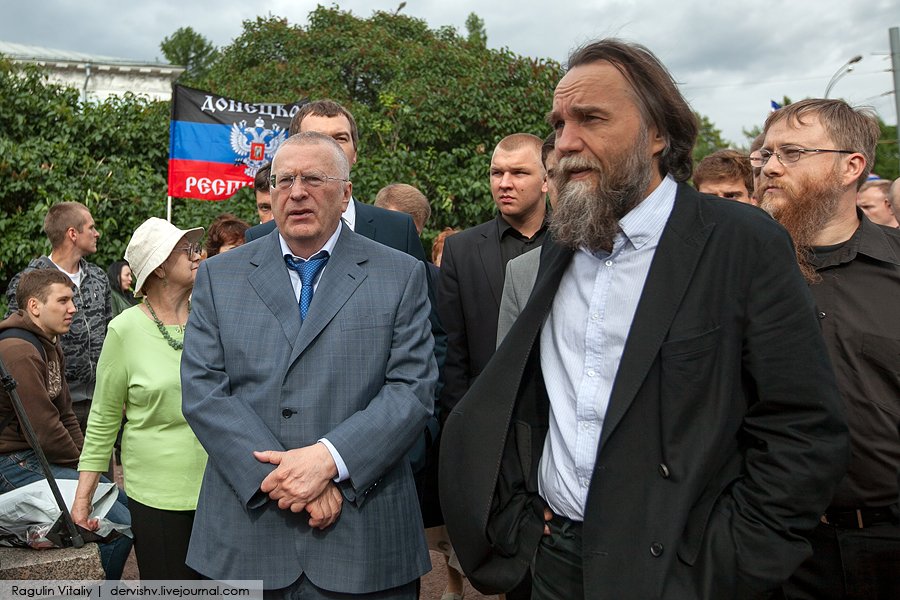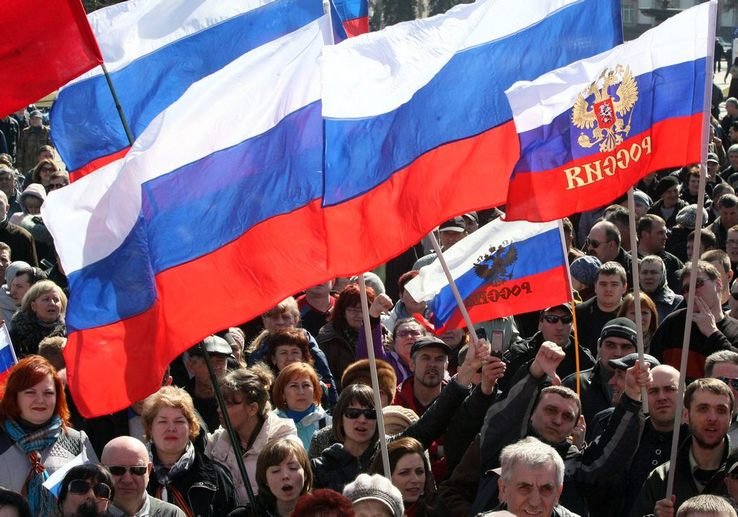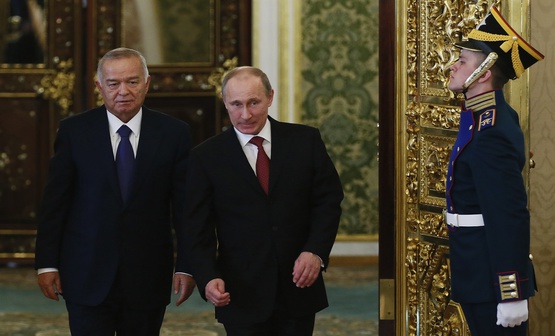1. Active imperialists

2. Active conformists

Trending Now
3. Passive conformists
 This category of people is rather arbitrary, they are not united in any kind of community on an ideological or professional basis, and this category may include people of different social strata and wealth level. Their attitude to what is happening can be defined as ordinary adaptability: they quite objectively perceive what is happening in the world, but nevertheless do not see anything reprehensible in Russia's actions.
Many people in this group are representatives of the "middle class". These people turned out to be smart enough to be skeptical about, say, the stories of the “fascists” and “bloody junta” in Ukraine, but at the same time they are not knowledgeable enough about foreign policy and therefore believe that Putin’s actions are in Russia's interests.
Pros:
– these people mainly express their views to those around them, and do not actively promote them in the information space. They didn’t actively make enemies; thus, they have no reason to fight for the preservation of the regime.
– due to the lack of moral standards, it will be easy for them to adapt to any new government.
– they are not organized, and therefore do not constitute any pronounced force.
Cons:
– the idea that “the end justifies the means” or of the greatness of Russia appeals to these people, and even after losing in the future, they can create fertile ground for the revanche of the imperial ideas.
This category of people is rather arbitrary, they are not united in any kind of community on an ideological or professional basis, and this category may include people of different social strata and wealth level. Their attitude to what is happening can be defined as ordinary adaptability: they quite objectively perceive what is happening in the world, but nevertheless do not see anything reprehensible in Russia's actions.
Many people in this group are representatives of the "middle class". These people turned out to be smart enough to be skeptical about, say, the stories of the “fascists” and “bloody junta” in Ukraine, but at the same time they are not knowledgeable enough about foreign policy and therefore believe that Putin’s actions are in Russia's interests.
Pros:
– these people mainly express their views to those around them, and do not actively promote them in the information space. They didn’t actively make enemies; thus, they have no reason to fight for the preservation of the regime.
– due to the lack of moral standards, it will be easy for them to adapt to any new government.
– they are not organized, and therefore do not constitute any pronounced force.
Cons:
– the idea that “the end justifies the means” or of the greatness of Russia appeals to these people, and even after losing in the future, they can create fertile ground for the revanche of the imperial ideas.
4. Typical everyman
 This includes the vast majority of Kremlin supporters. With regard to Ukraine and most other countries, such people are in fact quite peaceful. They are horrified by any reports of death and sigh sadly, constantly emphasizing that they do not understand anything in politics, but any war is terrible. With all their heart they want to believe that tragic events will bypass them, have no relation to them and will never touch them. The main illusion, in which the majority really wants to believe, is the illusion of a quiet life, which it fears to lose. The main characteristic of these people is a high level of inertia and fear.
The overwhelming majority, despite the obvious reality, convinces itself that everything is the same as before, and that Russia is forced to clash with the outside world for reasons beyond its control. These people are ready to hide from the cruel truth in any lie, the value and content of which does not matter.
The truth for such people is unpleasant, not because they agree with the aggression and interference in the affairs of other countries, but because it instills anxiety in their heart and destroys their illusion that peace and stability will last forever. The thought of the inevitable collapse of their country, to which the policy of the authorities is leading, becomes so unbearable that it gives rise to the very outpouring of aggression and the desire to blame others for their troubles, which we see from these people in public space.
Pros:
– these people, in principle, are not interested in maintaining the regime, and with a further fall in the standard of living, most likely, they themselves will increasingly desire its change, which we are seeing today.
– With all their fear of authorities, they are capable of protest if it affects important areas of their life, first of all, the standard of living, social services and health care.
Cons:
– a high level of fear combined with irresponsibility, as well as the traditional for this group of Russians sacralization of the state and their naive belief that “everything will turn out for the best” without their participation lead to their willingness to endure significant deprivation for a long time without daring to openly protest.
– right up to the complete collapse of the Russian economy, such people will try to at least passively support the current government out of fear that otherwise "it will be even worse."
This includes the vast majority of Kremlin supporters. With regard to Ukraine and most other countries, such people are in fact quite peaceful. They are horrified by any reports of death and sigh sadly, constantly emphasizing that they do not understand anything in politics, but any war is terrible. With all their heart they want to believe that tragic events will bypass them, have no relation to them and will never touch them. The main illusion, in which the majority really wants to believe, is the illusion of a quiet life, which it fears to lose. The main characteristic of these people is a high level of inertia and fear.
The overwhelming majority, despite the obvious reality, convinces itself that everything is the same as before, and that Russia is forced to clash with the outside world for reasons beyond its control. These people are ready to hide from the cruel truth in any lie, the value and content of which does not matter.
The truth for such people is unpleasant, not because they agree with the aggression and interference in the affairs of other countries, but because it instills anxiety in their heart and destroys their illusion that peace and stability will last forever. The thought of the inevitable collapse of their country, to which the policy of the authorities is leading, becomes so unbearable that it gives rise to the very outpouring of aggression and the desire to blame others for their troubles, which we see from these people in public space.
Pros:
– these people, in principle, are not interested in maintaining the regime, and with a further fall in the standard of living, most likely, they themselves will increasingly desire its change, which we are seeing today.
– With all their fear of authorities, they are capable of protest if it affects important areas of their life, first of all, the standard of living, social services and health care.
Cons:
– a high level of fear combined with irresponsibility, as well as the traditional for this group of Russians sacralization of the state and their naive belief that “everything will turn out for the best” without their participation lead to their willingness to endure significant deprivation for a long time without daring to openly protest.
– right up to the complete collapse of the Russian economy, such people will try to at least passively support the current government out of fear that otherwise "it will be even worse."
5. Passive victims of propaganda
 It is quite difficult to separate these people from a “typical everyman,” who is also ready to believe propaganda in his flight from reality. The difference here, perhaps, is only in the degree of this faith: if a “typical Russian” in his heart recognizes the real situation, but with all his strength tries to turn away from reality and at least not think about it, the “victim” does not doubt what he is fed by propaganda.
These are mostly people with a low level of education, immersed in their everyday life. Often, they sincerely sympathize with the "crucified boys who suffered from the Bandera junta," the "dying Syrian children under American bombs" and other images created by television.
Pros:
– such people, as well as “typical everyman”, are not personally interested in maintaining the regime. The main thing for them is their life, and they are willing to tolerate the regime only if it provides for at least some kind of stability.
– in all aspects, except for foreign policy, they, like “typical everymen,” can criticize the authorities.
– this is, in fact, the only category of people that is truly capable of “waking up to reality,” and this can have a significant impact on their psychological state. For them, the truth can become a shocking discovery, and genuine repentance may induce at least some of them to radically reconsider their views.
Cons:
– the fear that in the event of the change of the regime life will be even worse is even higher in this group than that of the “typical everyman,” since such fear is the pivotal basis of the very propaganda in which they sincerely believe.
– due to the mostly low level of income, this group would experience the effects of economic collapse later than others.
– this group is the most passive, and therefore its potential of protesting against the regime remains rather low.
It is quite difficult to separate these people from a “typical everyman,” who is also ready to believe propaganda in his flight from reality. The difference here, perhaps, is only in the degree of this faith: if a “typical Russian” in his heart recognizes the real situation, but with all his strength tries to turn away from reality and at least not think about it, the “victim” does not doubt what he is fed by propaganda.
These are mostly people with a low level of education, immersed in their everyday life. Often, they sincerely sympathize with the "crucified boys who suffered from the Bandera junta," the "dying Syrian children under American bombs" and other images created by television.
Pros:
– such people, as well as “typical everyman”, are not personally interested in maintaining the regime. The main thing for them is their life, and they are willing to tolerate the regime only if it provides for at least some kind of stability.
– in all aspects, except for foreign policy, they, like “typical everymen,” can criticize the authorities.
– this is, in fact, the only category of people that is truly capable of “waking up to reality,” and this can have a significant impact on their psychological state. For them, the truth can become a shocking discovery, and genuine repentance may induce at least some of them to radically reconsider their views.
Cons:
– the fear that in the event of the change of the regime life will be even worse is even higher in this group than that of the “typical everyman,” since such fear is the pivotal basis of the very propaganda in which they sincerely believe.
– due to the mostly low level of income, this group would experience the effects of economic collapse later than others.
– this group is the most passive, and therefore its potential of protesting against the regime remains rather low.
6. Active victims of propaganda






